
Roseola is a mild and very common infection that affects mostly very young children, from six months to two years of age. Since this illness is very common, it is estimated that most children get infected by it before they reach kindergarten age.
Roseola is caused by two different strains of herpes virus, human herpesvirus (HHV) type 6 and type 7. It typically causes fever and rash which last for a few days. For some children, the symptoms are barely noticeable, they may have the virus and carry it but their parents may not even know it is there. On the other hand, some children may have fully developed symptoms.
Symptoms
After the child gets infected with the virus, it takes a few weeks for the symptoms to start. Most commonly the symptoms are limited to fever and rash.
A sudden, high grade fever is the first sign of roseola. The temperature can reach 103 F (39.4C) or it can even go higher. The fever can be preceded or accompanied by sore throat, runny nose or slightly swollen lymph nodes in the neck. The fever usually lasts from three to five days.
A rash is another typical symptom of roseola. It can appear along the fever but it usually comes once the fever subsides. The rash comes in form of tiny pink spots, sometimes with a white ring around them. It appears first on the chest, back and stomach, from where it can spread to neck and arms, in rare cases to the legs and the face.
This rash typically does not cause discomfort or itch and it may last from several hours to several days.
Other symptoms of roseola may include fatigue, irritability, diarrhea, loss of appetite and swollen eyelids.
Possible complications
A fever that sets in very quickly or reaches a high temperature in a short period of time may cause fever seizures in children. When this happens, the child usually loses consciousness, although briefly, and has convulsions, which means his or her arms, legs and head may jerk. The loss of bowel or bladder control may also occur.
These seizures may be very frightening but they pass quickly and leave no permanent damage in healthy children. However, it is advised that parents seek emergency care if the child happens to have fever-related seizures.
Other complications of roseola are also very rare for healthy children and adults. However, in persons whose immune system is compromised in some way or weakened, roseola may lead to some complications, like recurrence of the infection or its spreading, leading usually to pneumonia or encephalitis.


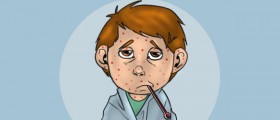

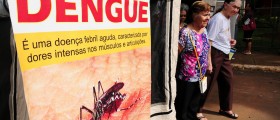

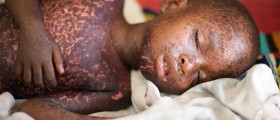

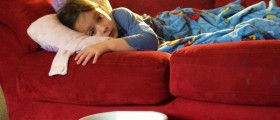



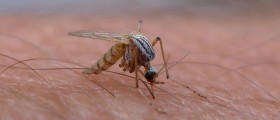



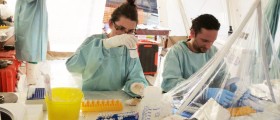
Your thoughts on this
Loading...